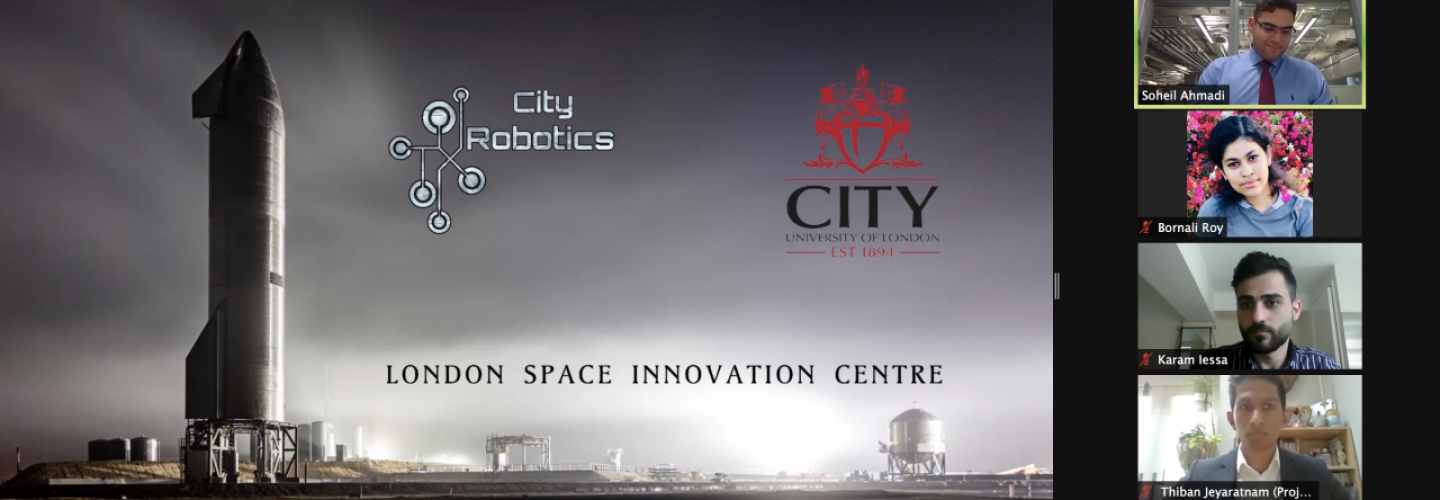The ambitious competition is supported by the London Space Innovation Centre.
By City Press Office (City Press Office), Published
In Term 1 of the 2020-2021 academic year, Professor Nabil Aouf from the School of Mathematics, Computer Science and Engineering (SMCSE) and City’s Robotics and Machine Learning Society’s Soheil Ahmadi and Thiban Jeyaratnam agreed that the Society should sponsor and manage a virtual CubeSat competition to facilitate students, mainly from 2nd year studies, to design a Low Earth Orbit (LEO) micro-satellite satellite (aka CubeSat) for an Earth observation experiment.
Thirty-four students from across the City took up the challenge and formed into eight groups. The choice of experiment to be carried by the satellites (the payload) was left to the groups to decide. The prize for the best design was university funding to build the winning design.
The ambitious scheme was wholly supported by the Dean of SMSCE, Professor Rajkumar Roy, who arranged funding for the prize and support for the competition. Support was also provided by London Space Innovation Centre led by Managing Director, Ehsan Razavizadeh.
To assist the groups Professor David Stupples and Duarte Rondao (research fellow City) arranged lectures in CubeSat design and advice on the possible experiments to be undertaken. A satellite design expert from the European Space Agency (ESA) also helped with the education process. In the final call, three groups made it to competition, (1) to examine the illegal logging in the Amazon Jungle, (2) to offer geolocation services for emergence response, and (3) to support farming in Bangladesh with climate change impact.
The final competition presentation was held on 22nd June 2021.
The judges for the occasion were, Mr Ehsan Razavizadeh (Managing Director of the London Space Innovation Centre), Professor David Stupples (Senior Fellow in the London Space Innovation Centre), Mr Duarte Rondao (Research Fellow at City), Ms Yasrine Ibnyahya (Inmarsat), and Alexander Kinnard (ESA).
The event was opened with remarks from Professor Rajkumar Roy. In the event the marking was very close with only 4 marks separating the three competing groups.
The winner was the team concentrating on Bangladesh farming. Congratulations goes to Haci Caner (Leader), Chandra Rodrigues, Imaan Siddique, Daniel Chulu, and Anisha Uteem. All submissions were of a very high standard.
We all look forward to the CubeSat carrying this experiment to fruition and possibly being launched into space.
A special thanks goes to Soheil Ahmadi and Thiban Jeyaratnam for their tireless support to the competition as a whole.
